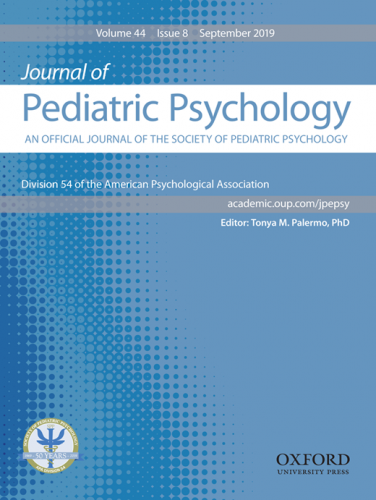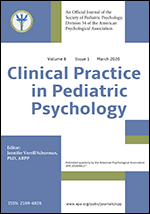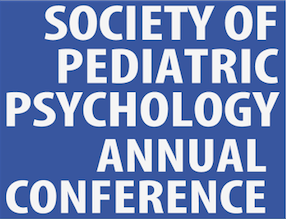Fact Sheet: Cystic Fibrosis
Cystic fibrosis (CF) is a progressive, genetic disease that is caused by mutations in the cystic fibrosis transmembrane conductance regulator (CFTR) gene. The CFTR gene causes the CFTR protein to function incorrectly and no longer move chlorine to the cell surface. When the CFTR protein is dysfunctional, chlorine cannot attract water to the cell surface and mucus become thick and sticky in organs such as the lungs and pancreas. Patients with CF typically experience persistent lung infections that limit their ability to breathe over time. The mucus in the lungs fills the airways and causes infections, inflammation, respiratory failure and other complications.
Prevalence and course
A child inherits one copy of the defective CF gene from each of their biological parents. CF occurs 1 in 2,500 to 3,500 white newborns in the United States. Cystic fibrosis is diagnosed less frequently in other ethnic groups, e.g., 1 in 31,000 Asian Americans, and 1 in 17,000 African Americans. The current median life expectancy of individuals with CF is approximately 44 years. To achieve this predicted survival age, patients need to follow a complex daily medication regimen, which typically requires a number of therapies (e.g., inhaled mucolytics, chest physiotherapy, oral vitamins, inhaled antibiotics, pancreatic enzymes), each contributing to the maintenance of effective long-term lung functioning. The recommended therapies collectively are time-consuming and challenging, taking nearly two hours per day to complete.
Health and Psychosocial Consequences
Individuals with CF and parents who take care of children with CF are two to three times more likely to experience depression, anxiety, or both, compared to people in the general population. Psychosocial concerns in children and adolescents with CF that have been reported include disruptive behavior, low self-esteem, disrupted peer relationships, and family conflict. As a part of routine care, patients with CF and their caregivers should be provided with education and interventions focused on the prevention of psychosocial concerns through the promotion of effective coping and successful disease management strategies. Examples of these strategies may include working with individuals and families to develop specific problem-solving skills and utilizing cognitive behavioral skills to decrease depression and anxiety and improve resilience.
Evidence-based Assessment
Important areas to assess in youth with CF include psychological factors such as symptoms of depression, anxiety, and stress. CF Foundation guidelines recommend that patients with CF complete a screener for depression and anxiety as a routine component of clinic visits. Patients with CF who screen positive should subsequently undergo a clinical assessment to determine presence, duration and severity of symptoms. Additionally, patients should be evaluated for severity of CF, prior diagnosis of mental illness, previous mental health treatment, family history of mental illness, and presence of other chronic illnesses. Treatment-related factors should also be assessed such as barriers to adherence, health literacy, burden of treatment regimen, and readiness to transition to adult care. Family-related factors such as distribution of responsibility of care between parent and child, socioeconomic status, and access to health care services have been shown to be correlated with health outcomes.
Culture, Diversity, Demographic, and Developmental Factors
Socioeconomic status is associated both with medication adherence and respiratory outcomes in pediatric CF patients. Additionally, low maternal education, low household income, and one-adult family structure are risk factors for poorer adherence in this population. Adherence is typically lower in adolescents as compared to younger children. Research has identified a variety of barriers that put patients with CF at particular risk for negative health outcomes, including elevated rates of anxiety and depression, high treatment burden and low adherence, the progressive nature of the disease resulting in worsening health, and cost of and lack of access to specialized medical care.
Evidence-based Interventions
Evidence-based interventions are typically designed to address concerns related to adherence, (e.g., barriers, insurance concerns), psychosocial adjustment to illness, and other areas of functioning. Interventions for youth are primarily family-based and often include health care professionals. There are a variety of modes by which interventions are delivered including face-to-face, telephone, and internet-based communication. The majority of psychological and behavioral interventions are individual-based, as recent infection control guidelines prohibit group-based format for patients with CF. Interventions with the strongest evidence base to date for this population are those focused on adherence to dietary intake and nutritional status in young children with CF by combining educational, parent management, and behavioral techniques. Results of numerous studies have indicated that tailored behavioral interventions are effective in increasing calorie intake in young children with CF who were below the recommended body mass index. In addition to interventions focused on adherence, adolescents and adults may receive treatment for symptoms of depression and anxiety. Components of this treatment may include education sessions and/or preventative or supportive psychological interventions. Providers are recommended to utilize evidence-based psychological interventions with all adolescents and adults with CF whose depression or anxiety is of at least moderate severity. Cognitive behavioral therapy (CBT) has been shown to be efficacious and effective in treating symptoms of anxiety and depression in child and adolescent patients with a chronic illness through multiple trials. Additionally, other therapies such as interpersonal therapy (IPT) and acceptance and commitment therapy (ACT) have some evidence demonstrating a decrease in symptoms of anxiety and depression. Evidence suggests that antidepressant medication may be beneficial for individuals with CF when prescribed as a part of a comprehensive treatment plan, and in conjunction with cognitive behavioral interventions.
Resources:
Authors: Kristine Durkin, M.S. & Christina Duncan, Ph.D.
Date of last update: January, 2020
References
- Cystic Fibrosis Foundation Patient Registry: 2013 Annual Data Report to Center Directors (2014). Bethesda, Maryland: Cystic Fibrosis Foundation.
- Cystic Fibrosis Foundation. (2017). About cystic fibrosis. Retrieved from https://www.cff.org/What-is-CF/About-Cystic-Fibrosis/. Accessed 10 May 2017.
- Goldbeck, L., Fidika, A., Herle, M., & Quittner, A. L. (2014). Psychological interventions for individuals with cystic fibrosis and their families. Cochrane Database of Systematic Reviews, (6), 1-152.
- Modi, A. C., Lim, C. S., Yu, N., Geller, D., Wagner, M. H., & Quittner, A. L. (2006). A multi-method assessment of treatment adherence for children with cystic fibrosis. Journal of Cystic Fibrosis, 5(3), 177-185.
- Oates, G. R., Stepanikova, I., Gamble, S., Gutierrez, H. H., & Harris, W. T. (2015). Adherence to airway clearance therapy in pediatric cystic fibrosis: socioeconomic factors and respiratory outcomes. Pediatric Pulmonology, 50(12), 1244-1252.
- Quittner, A., Abbott, J., Georgiopoulos, A., Goldbeck, L., Smith, B., Hempstead, S., … Elborn, S. (2015). International committee on mental health in cystic fibrosis: Cystic fibrosis foundation and European cystic fibrosis society consensus statements for screening and treating depression and anxiety. Thorax, 71, 26–34.
- Sansom-Daly, U. M., Peate, M., Wakefield, C. E., Bryant, R. A., & Cohn, R. J. (2012). A systematic review of psychological interventions for adolescents and young adults living with chronic illness. Health Psychology, 31(3), 380.
- Sawicki, G. S., Sellers, D. E., & Robinson, W. M. (2009). High treatment burden in adults with cystic fibrosis: Challenges to disease self-management. Journal of Cystic Fibrosis, 8(2), 91-96.
- Stark, L. J., Quittner, A. L., Powers, S. W., Opipari-Arrigan, L., Bean, J. A., Duggan, C., & Stallings, V. A. (2009). Randomized clinical trial of behavioral intervention and nutrition education to improve caloric intake and weight in children with cystic fibrosis. Archives of Pediatrics & Adolescent Medicine, 163(10), 915-921.
- Szyndler, J. E., Towns, S. J., van Asperen, P. P., & McKay, K. O. (2005). Psychological and family functioning and quality of life in adolescents with cystic fibrosis. Journal of Cystic Fibrosis, 4(2), 135-144.



